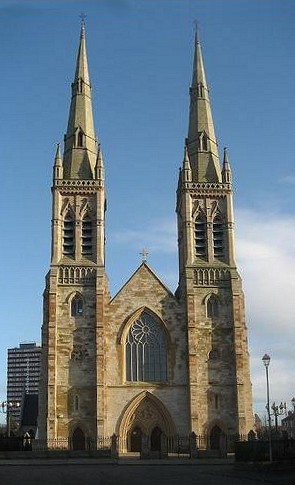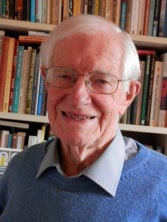This article needs additional citations for verification .(September 2024) |
Hugh Boyd (1746–1794) was an Irish essayist.
This article needs additional citations for verification .(September 2024) |
Hugh Boyd (1746–1794) was an Irish essayist.
Boyd was the second son of Alexander Macauley of County Antrim, Ireland, and Miss Boyd of Ballycastle in the same county. He was born at Ballycastle in October 1746, and showed precocious talents. He was sent to Dr. Ball's celebrated school at Dublin, and at the age of fourteen entered Trinity College, Dublin. He became M.A. in 1765, and would have entered the army, but his father's somewhat sudden death left him unprovided for. He accordingly chose the law for a profession, and went to London. There he became acquainted with Goldsmith and with Garrick. His wit and talents and his reputed skill at chess soon brought him into the best society. In 1767 he married Frances Morphy, and on the death of his maternal grandfather he took the name of Boyd.
After a visit to Ireland in 1768, during which he wrote some political letters in the Dublin journals, he lived at various places in and near London, his time and talents being devoted to literature, politics, and legal studies. During these years in London Boyd was a frequent contributor to the Public Advertiser and other journals, and was in close intimacy with the circle of Burke and Reynolds. In 1774 he began to work harder at the law, and also attended the commons' debates, which he wrote down from memory with extraordinary accuracy. In 1775 he was admitted to St John's College, Cambridge. [1] Another visit to Ireland took place in 1776, on the occasion of an election for Antrim, the candidate for which he supported by a series of able letters under the signature of "A Freeholder".
Financial pressures eventually forced him to seek paid employment, and in 1781 he accepted the appointment of secretary to Lord Macartney, when that officer was nominated governor of Madras. Boyd now applied himself sedulously to the study of Indian affairs. Not long after his arrival at Madras he conducted a mission from the governor to the king of Kandy in Ceylon, requiring that potentate's assistance against the Dutch. On his return the vessel in which he sailed was captured by the French, and he became a prisoner for some months at the isle of Bourbon. Returning at length to India he lived for some time at Calcutta, and eventually was appointed master-attendant at Madras. In 1792 Boyd conducted a paper called the Madras Courier , and the following year projected the Indian Observer, being papers on morals and literature; and started a weekly paper, Hircarrah (i.e. messenger), as a vehicle for the essays. In 1794, he proposed to publish by subscription an account of his embassy to Kandy, and had actually begun the work when he was carried off by an attack of fever. He died on 19 October 1794. [2]
Boyd is represented as possessed of very high social and intellectual qualities. His claims to a place in the history of English literature rest very much on the assumption — maintained by John Almon and by George Chalmers — that he was the author of the Letters of Junius . Boyd's writings were collected and republished after his death by one of his friends in India, under the title of The Miscellaneous Works of Hugh Boyd, the author of the Letters of Junius, with an Account of his Life and Writings, by Lawrence Dundas Campbell (2 volumes, London, 1800). They comprise the Freeholder Letters; Democraticus, a series of letters printed in the Public Advertiser (1779); The Whig, a series of letters contributed to the London Courant, (1779–80); Abstracts of Two Speeches of the Earl of Chatham; Miscellaneous Poems; Journal of Embassy to the King of Candy; and the Indian Observer.

Sir William Jones was a British philologist, orientalist and a puisne judge on the Supreme Court of Judicature at Fort William in Bengal, and a scholar of ancient India. He is particularly known for his proposition of the existence of a relationship among European and Indo-Aryan languages, which later came to be known as the Indo-European languages.

County Antrim is one of the six counties of Northern Ireland, located within the historic province of Ulster. Adjoined to the north-east shore of Lough Neagh, the county covers an area of 3,086 square kilometres (1,192 sq mi) and has a population of 651,321, as of the 2021 census. County Antrim has a population density of 211 people per square kilometre or 546 people per square mile. It is also one of the thirty-two traditional counties of Ireland.

Ballycastle is a small seaside town in County Antrim, Northern Ireland. It is on the north-easternmost coastal tip of Ireland, in the Antrim Coast and Glens Area of Outstanding Natural Beauty.

George Chalmers was a Scottish antiquarian and political writer.

George Macartney, 1st Earl Macartney, was an Anglo-Irish statesman, colonial administrator and diplomat who served as the governor of Grenada, Madras and the British-occupied Cape Colony. He is often remembered for his observation following Britain's victory in the Seven Years' War and subsequent territorial expansion at the Treaty of Paris that Britain now controlled "a vast Empire, on which the sun never sets".

Junius was the pseudonym of an anonymous British writer who contributed a series of letters to the Public Advertiser, a London-based political newspaper run by Henry Sampson Woodfall, from 21 January 1769 to 21 January 1772. The signature had been already used, apparently by the same writer, in a letter written on 21 November 1768. These works, along with numerous other personal letters, were included in his Letters of Junius collection that was published in 1772.
Henry Sampson Woodfall was an English printer and journalist. He was born and lived in London.

Edward Dowden was an Irish critic, professor, and poet.

William Combe was a British miscellaneous writer. His early life was that of an adventurer, his later was passed chiefly within the "rules" of the King's Bench Prison. He is chiefly remembered as the author of The Three Tours of Doctor Syntax, a comic poem, illustrated by artist Thomas Rowlandson's colour plates, that satirised William Gilpin. Combe also wrote a series of imaginary letters, supposed to have been written by the second, or "wicked" Lord Lyttelton. Of a similar kind were his letters between Swift and "Stella". He also wrote the letterpress for various illustrated books, and was a general hack.
Randall MacSorley MacDonnell, 1st Earl of Antrim, PC (Ire), rebelled together with Tyrone and Tyrconnell in the Nine Years' War but having succeeded his brother, Sir James mac Sorley MacDonnell, as Lord of the Route and the Glynns in 1601, he submitted to Mountjoy, the Lord Deputy of Ireland, in 1602.

The Diocese of Down and Connor, is a Latin Church ecclesiastical territory or diocese of the Catholic Church in Northern Ireland. It is one of eight suffragan dioceses in the ecclesiastical province of the metropolitan Archdiocese of Armagh. Bishop Alan McGuckian is Bishop.
Junius was the pseudonym of a writer who contributed a series of political letters critical of the government of King George III to the Public Advertiser, from 21 January 1769 to 21 January 1772 as well as several other London newspapers such as the London Evening Post.
John Samuel Bewley Monsell was an Irish Anglican clergyman and poet.

John Hoadly was an Anglican divine in the Church of Ireland. He served as Bishop of Ferns and Leighlin, as Archbishop of Dublin, and as Archbishop of Armagh from 1742 until his death.
Philip Francis was an Anglo-Irish clergyman and writer, now remembered as a translator of Horace.
Colonel Nathaniel Montgomery-Moore of Garvey, Co. Tyrone and Fassaroe Castle, Co. Wicklow was an Irish Member of Parliament.
Hugh Stuart Boyd (1781–1848), was an English scholar of Greek, who taught Elizabeth Barrett Browning.
William Burke was an English pamphleteer, official, and politician. He was one of the supposed authors of Junius's Letters.

Robin H. S. Boyd was an Irish theologian and missionary to India, ordained in the Irish Presbyterian Church. He also worked with the Student Christian Movement and was a presbyter in the Church of North India.
Hugh Boyd (1765–1795) was an Irish politician.
![]() This article incorporates text from a publication now in the public domain : "Boyd, Hugh (1746-1794)". Dictionary of National Biography . London: Smith, Elder & Co. 1885–1900.
This article incorporates text from a publication now in the public domain : "Boyd, Hugh (1746-1794)". Dictionary of National Biography . London: Smith, Elder & Co. 1885–1900.